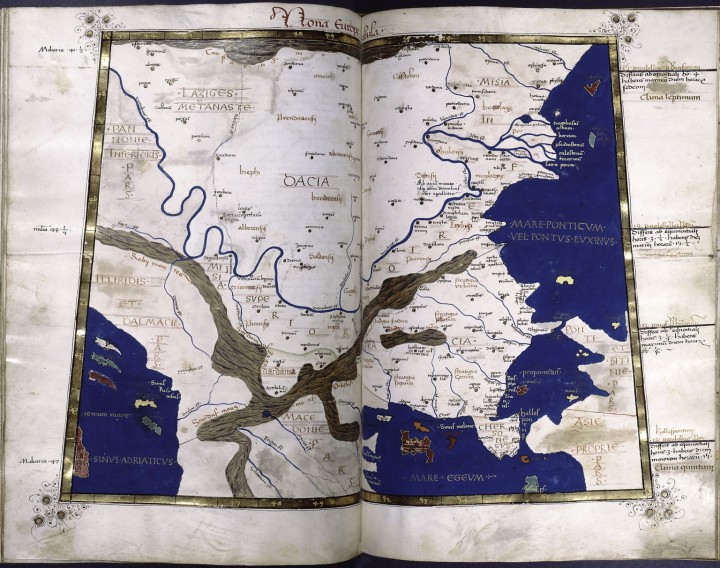I’ve been extraordinarily pleased with all the feedback I’ve been getting from readers about my new book The Colony. I was even stopped in a local store by someone who was reading the book, which was amazingly cool. I put a hell of a lot of hard work into writing a fast-paced story that’s easy to read and I’m very happy that people are enjoying it.
But today I want to tell you a different story, about a different colony, this one entirely non-fictional. I was reading through the journal Nature (you know, the one that exposed Victor Ponta as a flaming plagiarist) and came across a very interesting article on population shifts in mid-Holocene Europe (PDF) as a result of farming, something that probably wouldn’t interest many people.
However the article led me to further research which eventually branched into the Latin concept of a colonus, a kind of “pre-serf” that evolved in the Roman Empire (especially) during the Crisis of the Third Century. Essentially a Roman “colony” was a farming village wherein the residents were citizens (often retired soldiers) but were forced by law to remain in the village and farm there whether they liked it or not.
Lo and behold through my researches I came across a full list of Roman colonies and saw to my surprise that none other than Aurelia Napoca had been turned into a colony in the year 180 AD. You might recognize the name as being the ancient Latin form of Unicorn City, now called Cluj-Napoca, the city where I live.
The standard history (which is always disputed) is that the “Napoca” part of the name was derived from an earlier Dacian name for the area but what caught my eye was that Unicorn City was turned into a colony by the Emperor Commodus, probably one of the craziest emperors in Roman history, up there with Caligula and Nero, and yet is hardly known today.
At one point Commodus renamed the city of Rome (after himself, calling it Commodus’s Colony) as well as the 12 months of the year (each month named after one of his use names) and used to dress up as a god and “fight” battles as a gladiator in the arena. Truly one of history’s greatest megalomaniacs, it’s interesting that he played a remote part in the history of the city where I now live.
However the Roman colony in U-City didn’t last long as it was evacuated in 274 AD (due to the “3rd Century Crisis” linked above) and the Romans never came back. Unfortunately nobody knows what happened over the next 800 plus years as there are zero historical records. About all we know is the curious fact that the locals retained the Latin language almost intact and yet didn’t bother to hang on to any Roman customs, culture or engineering whatsoever.
The next thing anyone knows for sure is that the Hungarians are running the place about a thousand years later, using it as a small monastery town down the road from the far more important city of Turda (home to the valuable salt deposits the Romans mined). From then on my city is called either Clus in Latin (with variants in German and Italian) or Koloszvar in Hungarian until we get to the modern era after the Treaty of Trianon in 1920, where the Romanian government firmly affixes the name as just simple Cluj.
And then finally in 1974 when the “Stejar de Scornicesti”, the beneficent and all-knowing dictator of Romania, Nicolae Ceausescu, was here in town staying at his favorite hotel (Belvedere, named after the “mini” palace in France where the Treaty of Trianon was drafted and signed) and decided to pump up the Roman historical angle for the city and changed its name formally to “Cluj-Napoca”.
And thus I find out that two egomaniacs had a direct hand in the history of my beloved city.

In case you’re a big fan of historical records, above is a reproduction of the Balkans map of Claudius Ptolemaeus from his book Geographia, a book written back when the Romans were still in western Romania (the province of Dacia).
The map is written in Latin and Greek and is a little hard to make out but one tiny dot on there is “Napuka” (Greek spelling more akin to “Napouka”), referring to good old Unicorn City. Doesn’t look like much, does it? Indeed throughout most of history it was a tiny place with few natural resources and nobody could’ve ever expected that one day it would become the second largest city in the entire country and home to an awesome American writer.
BUT NOW YOU KNOW!

interesting
LikeLike
:)) “..home to an awesome American writer” – when you’re talking about yourself you’re as modest as Commodus :))
LikeLike